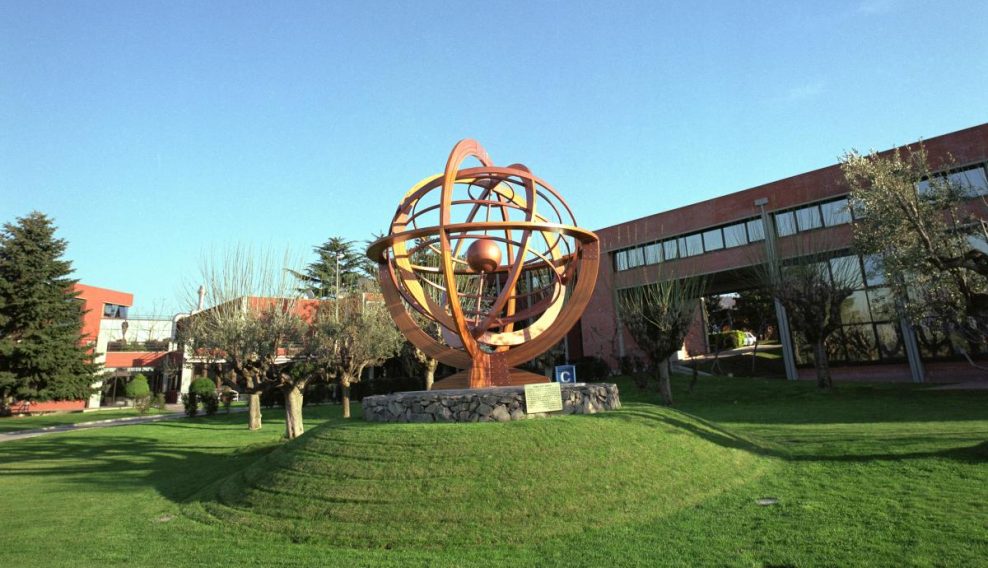At the beginning of 2023 the European Space Agency and the African Union Commission issued a call for 4 African Research Fellows to carry R&D activities for one year in ESA-ESRIN, Frascati. This was the second call, following the one successfully carried-out in 2021/2022. It aims at empowering African Researchers (PhD or Master degree with extensive research experience) to carry out Earth Observation (EO) R&D activities relevant for the EO AFRICA Initiative. The African Research Fellows maximise the use of EO data in synergy with in-situ and state-of-the-art modelling approaches, in a cloud environment, to respond to the challenges the African continent is facing with respect to Water Resources Management and Food Security.
A total of 82 proposals were received, along with the candidates’ CVs, 2 recommendation letters and a copy of certificates showing their academic qualifications. 39 proposals were submitted selecting Food Security as main topic, 43 selecting Water Resources Management.
Following an initial screening to verify correctness of the applications and eligibility, each candidate’s proposal was reviewed by different experts. A total of 10 experts reviewed the proposals, with 7 from ESA and 3 from the EO AFRICA R&D Facility.
The reviewers were requested to complete an evaluation form which covered 5 aspects of the candidate’s application as follows:
- Scientific Background
- EO data and other data exploitation
- Scientific Excellence
- Work plan and schedule
- New results & deliverables
A final selection meeting was conducted by ESA and AUC on 16/05/2023, to review the top ranked proposals and finalise decisions on acceptance of the best 4. The list below provides information about the selected proposals.
List of Selected Fellows
| Title | Researcher | Country | Short Description |
| Monitoring Soil Moisture Content over an Agriculture land area of Nigeria through Earth Observation | Odunayo David ADENIYI | Nigeria | The research aims to derive soil moisture content over agricultural regions of Nigeria (which cover approximately 70% of the land area) exploiting S1, S2, ESA-CCI, SMOS and SMAP in Machine Learning. Soil moisture information is critical for managing agricultural production and ensuring food security. The project will improve our understanding of the water cycle in Nigeria and provide insights into how changes in soil moisture content affect agricultural production. It will also contribute to the development of more accurate and reliable models of the water cycle, and provide valuable information to policymakers and agricultural managers by, enabling them to make informed decisions about water management and agricultural production in Nigeria. |
| Earth Observation Satellite Imagery and Cloud Computing to Monitor Human Activities Impacts on Water Quality in Pra River Basin in Ghana | Beatrice ASENSO BARNIEH | Ghana | This work will assess the impact of human activities (mining and crop farming) on the quality of water in Pra river basin, the largest river basin in south-western part of Ghana. The study will extract water quality parameters from EO satellite imagery in combination with in-situ measurements. The analysis will be conducted in a machine learning cloud computing platform and Geo-Information Systems (GIS) Environment. Expected outputs: water bodies map; map of spatial distribution of water quality indicators. The output may ensure the achievement of Sustainable Development Goals 6 and 15 |
| Sentinel’s radar and optical mission for cereal yield forecasting using statistical models over Morocco | Abdelhakim AMAZIRH | Morocco | The proposed activities aim to develop a dynamic decision support system to forecast cereal yield as early as possible during the growing season at the field level in Morocco, exploiting Sentinel-1 and -2 data to derive precise and timely information on the phenological status and development of crop as well as soil moisture condition. In addition, linear and nonlinear statistical/machine learning models will be compared to determine which is most appropriate for forecasting cereal yield. Expected outcomes: map of Land cover at high spatio-temporal resolution and Early estimation of cereal yield production |
| Assimilation of Leaf Area Index and Soil Moisture from Optical and SAR Data into the WOFOST Model to Improve Irrigated Wheat Yield Estimation | Gebeyehu Abebe ZELEKE | Ethiopia | The research focuses on the implementation of a joint Leaf Area Index and soil moisture assimilation strategy for S2 optical and S1 SAR data in the WOrld Food STudies (WOFOST) model to simulate the irrigated wheat yield at the field scale and to assess its performance at the field and basin scales. Validation will be performed using field observation data in the Jemma basin, central Ethiopia. Expected outcomes: improved accuracy of simulated wheat yield and improvement of crop monitoring and assessment at local and national level. |
The African Research Fellowships is one of the initiatives launched by AUC and ESA to empower Africans to benefit from latest technologies and data for their R&D activities. In the framework of this mutual collaboration, strong linkages and cooperation is ongoing between the GMES Africa Program and the EO AFRICA R&D Facility.

